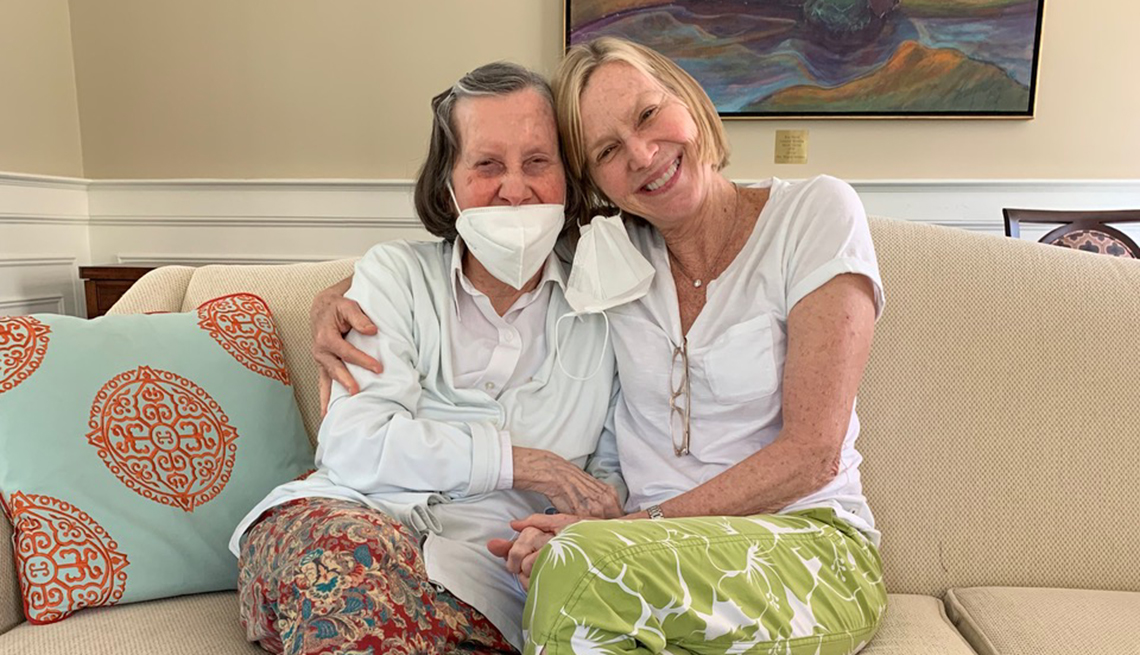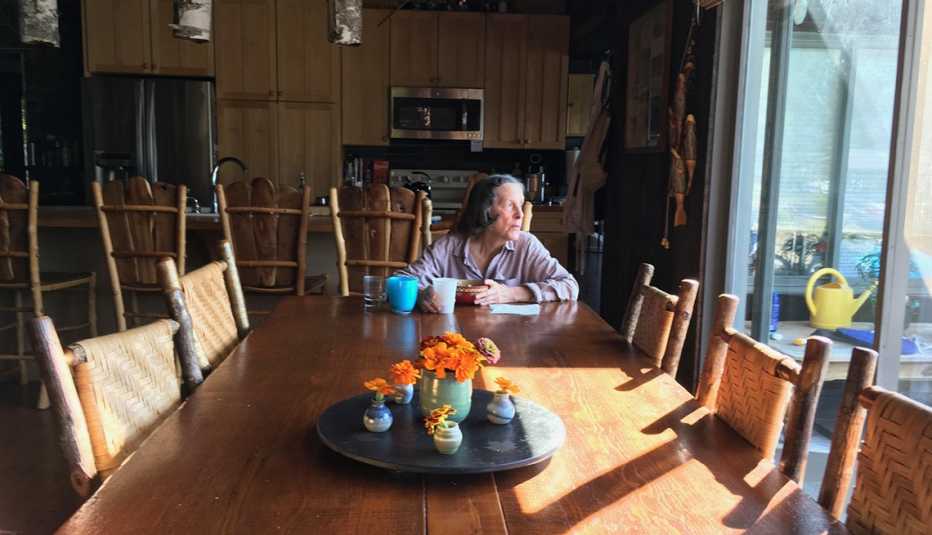A rapid decline
Everything collided at the holidays. The careful facade she had constructed began to unwind. There was rotting food in the refrigerator; it was now clear she’d lost the ability to put a meal together.
One of her aides would later tell us she found soiled clothes stuffed around the apartment and under the bed. What massive guilt we felt! Still, the three of us were comforted by the knowledge that this is not uncommon.
Many parents go to the ends of the earth to mask their decline and maintain appearances for their children, people assured us. Especially with a mother, the instinct is to nurture and protect to the end. No parent wants to feel as if they are the child.
But careful preparation is no match for the unpredictability of death. Most of us don’t get to choose our time. The hospice intake was scheduled on Christmas Eve. We scrambled plans and drove to Boston, praying that we could help her die in her own home, the one thing she’d asked us to help her accomplish. My mother had taken independent living as far as she could.
“I’m ready to go,” she told us repeatedly. “I don’t want to live anymore.” Her day-to-day life experience no longer fit her definition of living.
The end came fast, hastened by her determination to leave this world. As timid as she was about so many aspects of life, I never sensed she was afraid to die. She was a woman of strong faith, and she leaned into that hard. It gave her comfort when thinking about the end.
Hospice was incredible. Compassionate, dedicated people guided us, patiently explaining her breath and heartbeat, describing what signs to look for when death was near. We all sat, visited. Various grandchildren came to say goodbye, shocked a bit at the rapid escalation of her decline, the weight loss and papery paleness of her skin.
Facing the end of life is not for the faint of heart. There were so many emotions, the ping-ponging of grief and relief, the exhaustion and the doing, the sitting and watching for signs of pain or changes in the rhythm of her breathing. Was the hearing really the last thing to go? As my sister and I tidied the room, sorted through some of her things, we remembered, laughed and cried.
I thought about the trajectory of her life, all those years lived well, the hard work of childrearing and housekeeping, the aches and pains, the frustrations and rewards of being caregiver to my dad until she physically couldn’t continue. The realization that being a mother includes the constant worry about your children, which has no end, only a middle.
I was not prepared when some of the health care aides canceled shifts upon discovering they’d have to administer medications like morphine as part of hospice. I assumed that this conflicted with their personal beliefs about intervening in God’s plan, but it was jarring at first. I felt judged. This wasn’t their parent. We were fulfilling my mother’s wishes, and I couldn’t imagine the alternative, to sit and watch someone you love in such extreme mental pain and anxiety, day after day, until they died.
It was also interesting to watch the choices the three of us made about how we wanted to show up at the very end. There was absolutely no judgment.
One sister, who was with my mother the day that hospice arrived, was at peace with that goodbye. She did not feel compelled to be there at the end. This surprised her most of all, as she and I had sat together when my father died, grateful for the ability to witness that inexplicably mystical final moment of someone’s last breath.
My other sister sat by the bed with me for four days, before I left to go home to New York, planning to return. When my mother’s final moment came, life reminded us that you cannot script death.
I didn’t make it back to the bedside in time. I’d wanted so badly to be holding her hand, telling her she was loved as she took her last breath. That failure on my part undid me for a while. I hadn’t gotten the ending I’d wanted, and I tortured myself with the thought that I’d failed, as a daughter, to see her through.
Throughout the next week, my mother swirled in my thoughts, existing in a series of full-stop photographs, like a slide show in my head. There she was as a college graduate in a pink suit.
Now the image of my engaged parents washing a car, my mom in a demure, two-piece bathing suit. She appeared next as a new mother in 1960, holding me with joy and love.
On and on the images went. It struck me that I’d never again hear my mother’s voice on the other end of the line. I’d been saving her voicemails for the last six months. I could listen to them when I was ready.
Over the past few years, my mother had begun to end every phone call by saying, “Be good to yourself.” I try to hold her words in my head in the moments when I feel like reaching for the phone. There is no preparation for being a motherless child.
My mother did so many things right as she prepared for this stage of life. She was able to have the conversations around death in an open manner.
Here are some of the things my mother did to ease the end-of-life journey for herself and her family:
- She outlined all her wishes around end of life in official documents or in writing, including DNRs, a will and instructions about what she wanted for her memorial service. She left no guesswork.
- She divided possessions like jewelry and furniture among us while she was alive, so that we could talk about what we wanted and she could enjoy her things in our homes.
- She was definitive both in conversation and in writing about what constituted her definition of quality of life.
- She had long-term care insurance in place and never missed a payment.
- My parents chose their senior living facility while they were healthy and of sound mind. Not all parents are ready to leave their home at an earlier age, but we had discussions about what kinds of places were acceptable from a facility and geography standpoint.
And here’s what I learned about going through death with family members:
- Give others in the family grace if they handle things differently than you do. Don’t judge family members who aren’t capable of being around at the end.
- Set your own boundaries, and don’t feel guilty when you stick to them.
- If you are the executor of the will or the one closest to the parent, you can still delegate tasks, even though someone must take the lead.
- Make sure to review trusted information sources like AARP’s End of Life page when it comes to practical matters you will need to know after a death.









































































